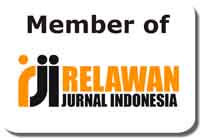Formalism and Power of Language: Unravelling the Narratology of Final Fantasy XVI
Abstract
Using the framework of formalist analysis, this study examines how language serves as a source of power in shaping the narrative depth, character development, and thematic exploration of Final Fantasy XVI. This research involves analyzing various types of language, from dialogue and narration to symbolism, metaphor, and simile. The research methodology employed is qualitative analysis, allowing for an in-depth examination of the linguistic complexities present in the game through textual analysis and content analysis. By thematically dissecting language and applying techniques from formalist linguistics, such as Deixis Analysis, the study aims to determine how game creators purposefully use linguistic techniques to construct emotional connotations and expressive effects. Additionally, it explores how witty dialogues between characters contribute to the development of story-related themes. This study reveals how the linguistic fabric of Final Fantasy XVI functions as an effective tool in crafting an engaging and powerful story. It draws players deeper into the game's world and evokes their sympathies for the various forces at play. Furthermore, the research highlights the intentional use of linguistic devices to enhance narrative immersion and emotional impact, showcasing the intricate interplay between language and storytelling in video games. Through this analysis, the study underscores the significance of linguistic elements in video game narratives, providing insights into how language can be manipulated to create compelling and immersive experiences for players.
Keywords
Full Text:
PDFReferences
Al-Ameedi, R. T., & Razzaq N. M. (2017). Aspects of Political Language and Parallelism. Journal of Education and Practice, 8(34), 185-200.
Aarseth, E. J. (1997). Cybertext: Perspectives on Ergodic Literature. Maryland: Johns Hopkins University Press.
Abdullah, M., Mahmood, A., & Ali, S. (2022). Formalism as a Linguistics Theory: a Comparative Stylistic Analysis of Poetic Literature. Journal of Positive School Psychology, 6(8), 10792-10799.
Al-Alami, S. (2019). Point of View in Narrative. Theory and Practice in Language Studies, 9(8), 911-916. doi:http://dx.doi.org/10.17507/tpls.0908.03
Bal, M. (1985). Narratology: Introduction to the Theory of Narrative. Toronto: University of Toronto Press.
Bennett, T. (2004). Formalism and Marxism. Abingdon: Routledge.
Bhandari., P. (2023, June 22). What Is Qualitative Research? | Methods & Examples. Retrieved from www.scribbr.com: https://www.scribbr.com/methodology/qualitative-research/
Bogdanov, A., & Karcz, A. (2005). The Polish Formalist School and Russian Formalism. Slavic and East European Journal, 49(3), 509. doi: http://dx.doi.org/10.2307/20058317.
Campbell, J. (1949). The hero with a thousand faces. Pantheon Books.
Culler, J. (2017). Theory of the Lyric. Harvard University Press.
Dancygier, B. &. (2014). Figurative Language. CUP.
Debnár, M. (2018). FORMALISM AND DIGITAL RESEARCH OF LITERATURE. Digital Age in Semiotics & Communication, 1(1), 113-120. doi:http://dx.doi.org/10.33919/dasc.18.1.8.
Eagleton, T. (2021). Formalism and its others: A response to Susan Wolfson. Journal of Comparative Literature, 68(2), 321-340.
Ebadi, S., & Ahmadi, R. (2022). A Native Video Gamer's Journey Toward Multi-literacy Development: A Narrative Inquiry. Journal of Language, Identity & Education. doi:10.1080/15348458.2022.2029450
Effe, A. (2020). Postcolonial criticism and cognitive literary studies: A new formalist approach to Antjie Krog’s Country of My Skull. Journal of Postcolonial Writing, 56(1), 97-109. doi:10.1080/17449855.2019.1702084
Fry, P. (2019). Formalism now. Modern Literary Criticism, 78(3), 210-228.
Gallagher, C. (2020). Formalism and Time. Modern Language Quarterly, 61(1), 229-251. doi:http://dx.doi.org/10.1215/00267929-61-1-229.
Görmez, A., & Beyoğlu, S. G. (2022). The Basis of Formalism and Its Limitations. Kafkas Üniversitesi Sosyal Bilimler Enstitüsü Dergisi(30), 443 - 456. doi:doi.org/10.56597/kausbed.1148797
Guerin, W. L. (2010). A handbook of critical approaches to literature. New York: Oxford University Press.
Hambali, G., Masadi, M. A., Rohman, M. N., Rizki, G., & Aliyah, A. (2023). Forms, Techniques, and Meanings in Abu Al-Aswad Al-Duali’s Poems. Proceedings of the 4th Annual International Conference on Language, Literature and Media (AICOLLIM) (pp. 59-69). Malang: Atlantis Press. doi:10.2991/978-2-38476-002-2_7
Jakobson, R., & Halle, M. (2015). Fundamentals of Language. Creative Media Partners.
Kahan, B. (2018). Shy Formalism. Journal of Modern Literature, 41(2), 178-182. doi:http://dx.doi.org/10.2979/jmodelite.41.2.13.
Kalinin, I. (2017). Viktor Shklovsky vs . Roman Jakobson.Poetic Language or Poetic Function of Language. ENTHYMEMA, 19, 342–351. doi:https://doi.org/10.13130/2037-2426/9427
Kuckartz, U. (2014). Qualitative Text Analysis: A Guide to Methods, Practice & Using Software. New York: SAGE Publications Ltd.
Laure-Ryan, M. (2014). Narration in Various Media. In P. Hühn, J. Pier, W. Schmid , & J. Schöne, Living Handbook of Narratology. Walter de Gruyter.
Leporati, M. (2019). New Formalism in the Classroom: Re-Forming Epic Poetry in Wordsworth and Blake. Humanities, 8(2), 100-110.
Levinson, M. (2017). The new formalism. Journal of Literary Studies, 45(2), 123-145.
Liontas, J. (2022). Let the Games Begin! Harnessing the Power of Gaming in Language Education. Iranian Journal of Language Teaching Research, 10(2), 1-16.
Manshur, F. M. (2019). Kajian Teori Formalism dan Strukturalism. Sasdaya: Gadjah Mada Journal of Humanities, 3(1), 79-94. doi:https://doi.org/10.22146/sasdayajournal.43888
Mayring, P. (2000). Qualitative Content Analysis. Forum Qualitative Sozialforschung, 1(2).
Montfort , N., & Bogost, I. (2020). Racing the Beam: The Atari Video Computer System. The MIT Press.
Nitsche, M. (2010). Games as Structures for Mediated Performances. In M. L. Stephan Günzel, Logic and Structure of the Computer Game (pp. 110-129).
Otter, S. (2020). A Different Formalism. Novel: A Forum on Fiction, 43(2), 350-353. doi:http://dx.doi.org/10.1215/00295132-2010-012.
Panggabean, D. S., & Rangkuti, R. (2020). The Basic Concept of Narratology and Narrative. Language Circle: Journal of Language and Literature, 14(2).
Pavel, T. G. (2014). Gerald Prince and Narrative Studies. Narrative, 22(3), 298-303.
Pratchett, T. (2007). The Wee Free Men. New York: HarperCollins.
Pratiwi, M. A. (2022). Formalism Analysis in Cecilia Ahern's Novel. Malang: Thesis.
Prima, R. B. (2019). Register and Power in Indonesian Online Game (A Sosiolinguistic Studies). Humanus: Jurnal Ilmiah Ilmu-ilmu Humaniora, 18(2), 193-207. doi:10.24036/humanus.v18i2.107169
Purbo, Z., Hidayat, N., & Wahyuni, S. (2022). Defamiliarization: A Formalism Study on How Words Can Create. International Journal of Research in Education, 2(1), 1-8. doi:https://doi.org/10.26877/ijre.v2i1.9749
Rimmon-Kenan, S. (2002). Narrative Fiction. Routledge.
Rokhmansyah, A. (2015). RDE baru sebagai landasan fabula dalam novel Entrok karya Okky Madasari: Kajian formalisme Rusia. CaLLs (Journal of Culture Arts Literature and Linguistics), 39-51. doi:10.30872/calls.v1i1.708
Rudis, D., & Poštić, S. (2018). Influence of Video Games on The Acquisition of The English Language. Verbum, 8, 112–128. doi:10.15388/Verb.2017.8.11354.
Sabariyanto. (2018). Structural Analysis of F. Fitzgerald’s. Surakarta: Skripsi.
Safikhani, R. (2018). Language formalism analysis of Bijan Najdi’s stories. European Journal of Literature, Language and Linguistics Studies, 2(4), 1-14. doi:0.5281/zenodo.1309022
Smith, A. R. (2020). Ludic Formalism: Analyzing Structural Elements in Video Games. Journal of Digital Aesthetics, 32(4), 221-238.
Spradley, J. A. (2016). Participant Observation. Waveland Press, Inc.
Sulistyorini, H. (2007). A Formalism approach on Daphne Du Maurier's Rebecca. LITE: Journal Bahasa, Sastra, dan Budaya, 3(1), 33-40. doi:https://doi.org/10.33633/lite.v3i1.611
Tenny, S., Brannan, J. M., & Brannan, G. D. (2022, September 18). Qualitative Study. Retrieved from StatPearls Publishing: https://www.ncbi.nlm.nih.gov/books/NBK470395/
Toh, W. (2023). The Player Experience and Design Implications of Narrative Games. International Journal of Human–Computer Interaction, 39(13), 2742-2769.
Tucker, H. (2018). Formalism. Victorian Literature and Culture, 46(3-4), 702-705. doi:https://doi.org/10.1017/S106015031800061X
Wibowo, A. P., Nababan, M., Santosa, R., & Kristina, D. (2019). Reconfiguring Localization Quality Assessment for Video Games. Journal of Social Studies Education Research, 10(3), 346-363.
Yoshida, N. (Producer), Maehiro, K. (Writer), Takai, H., & Maehiro, K. (Directors). (2023). Final Fantasy XVI [Motion Picture]. Japan.
DOI: http://dx.doi.org/10.31332/lkw.v0i0.6921
Copyright (c) 2024 Agung Prasetyo Wibowo, Ichwan Suyudi, SF Luthfie Arguby Purnomo, Hendro Firmawan, Ahmad Juma Khatib

This work is licensed under a Creative Commons Attribution-ShareAlike 4.0 International License.
Langkawi: Journal of The Association for Arabic and English indexed by:



















.png)
.png)

.png)
2.png)








